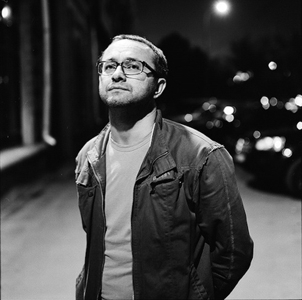Leviathan, review: 'the latest from a modern master'
11/06/2014
There's no doubting by this point that Russian director Andrei Zvyagintsev (The Return, Elena) is a modern master. His new film unfolds with the density of Dostoyevsky, and hardly feels a moment too long. It's a bleak but compassionate, glancingly comic and often satirically incendiary work about the pyramid structure of Russian corruption, with the little guy crushed helplessly beneath, and God, or at least the orthodox Church, perched on top.
The setting is the edge of civilisation in northern Russia – a barren estuary wilderness, where the vast, intact skeleton of a beached whale sags mournfully in the mud. Here Kolya (Alexey Serebryakov) lives with his family – a teenage son called Roma (Sergey Pokhodaev) and his second wife, a rather inscrutable younger woman called Lilya (Elena Lyadova). This is land Kolya has inherited, but it won't be his for much longer, if the unscrupulous local mayor (chubby, despicable, outstanding Roman Madyanov) succeeds in his plans to force an extremely disadvantageous sale and redevelop.
Kolya's only ally in trying to scupper this hostile takeover is a lawyer friend from Moscow, Dmitri (Vladimir Vdovitchenkov), who sets to work. Alas, the Byzantine nature of Kolya's legal quagmire – a loophole we hear summarised at motormouth speed by a female chief magistrate, in one unbroken, slowly advancing take – gives Dmitri no legitimate purchase for an appeal. His only option is to get dirty, presenting the mayor with a dark-blue binder containing all the elements, as he puts it, for "a horror movie with you in the lead".
Blackmail can stall Kolya's downfall, but only as a temporary hurdle for the mayor and his many sleazy connections to overcome. This is a viciously lawless world, where enemies of the state can be driven out into the wilderness and trussed up for target practice. In return, Kolya and his fellow working-class locals play cathartic games of their own, convening for a vodka-soused picnic where they prepare to take potshots at framed portraits of Russia's leadership, from Lenin to Gorbachev. "It's too early for the current ones," one of them quips, possibly unaware that the mayor himself proudly displays Putin's picture behind his desk.
The noose tightens around poor Kolya's neck from every angle: if he didn't have enough to worry about already, he doesn't seem to have noticed the awkward glances between Dmitri and his wife. Zvyagintsev has named his film after both Thomas Hobbes's great work of social contract theory and the Biblical Leviathan, which connects Kolya's tribulations with the Book of Job. The film's style is bitingly ironic, a little like Coppola's in The Godfather – we tend to end up in church, where all misdeeds are strictly denied, as if there are some things God simply doesn't need to know about.
There are one or two flaws in the construction, including an unlikely episode of flagrante delicto and offscreen gunfire: though Zvyagintsev briskly cuts from many scenes just as the crisis point is reached, this particular instance feels like a cheat. Serebryakov's terrific, clenched lead performance is the only thing preventing our protagonist coming over as little more than a human punchbag, bearing the brunt of an entire literary tradition of tragic Russian mishap. Uncompromising fatalism isn't Zvyagintsev's absolute strongest suit, but he's still better at it than anyone else.
Tim Robey
"The Telegraph"
